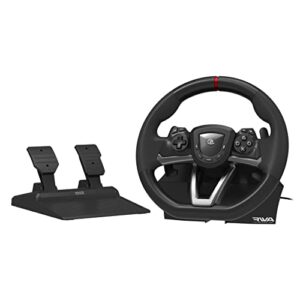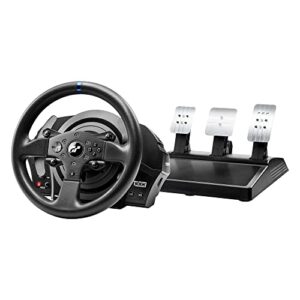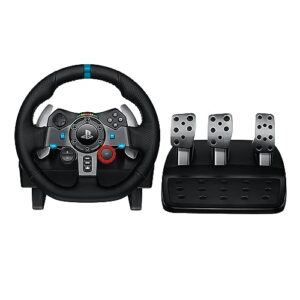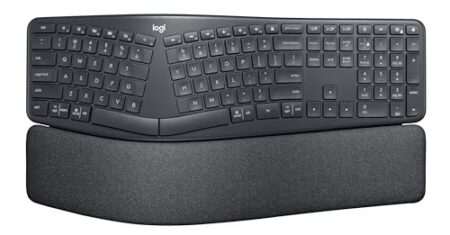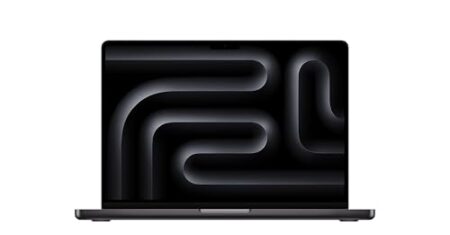Best Monitors for PS5 in 2025 (Top 9: Alienware, Samsung and More)
Find the best gaming monitors for your PlayStation 5. Our guide helps you choose the perfect display with 4K resolution, high refresh rates, and low latency for an optimal gaming experience.
Stop blaming your skills — it might be your monitor. If you want SMOOTHER framerates, sharper colors, and less input lag, the right display makes a night-and-day difference. You’ll notice responsiveness and clarity immediately.
No need to sell your console for a new TV. These picks work with your PS5 and cover everything from cinematic single-player nights to sweaty multiplayer sessions. Simple, fast, and tuned for play.
Contents
- The Best Monitors for PS5
- Alienware 27" Fast IPS QHD 180Hz
- Samsung Odyssey G55C 32" QHD 165Hz
- Acer Nitro 27" WQHD 180Hz IPS
- AOC 27" 240Hz Curved Competitive Monitor
- ASUS TUF 32" Curved 1440p 165Hz Monitor
- KTC 27" 1440p 170Hz Competitive Monitor
- SANSUI 27" 160Hz Curved Gaming Monitor
- Sceptre 30" 21:9 200Hz Ultrawide Monitor
- Sceptre 24" 100Hz Curved Entry Monitor
- Final Thoughts on the Best Monitors for PS5
- What Makes a Monitor Great for PS5 Gaming?
- How to Choose the Best Monitors for PS5
- 1. Look for 120Hz Refresh Rate with HDMI 2.1
- 2. Prioritize Low Response Time and VRR
- 3. Choose the Right Resolution: 1080p, 1440p, or 4K
- 4. Go for HDR and Brightness for Stunning Visuals
- 5. Consider Built-in Audio and Extra Features
- Check Out the Best Monitors for PS5
- Also Check Out Other Helpful Articles
- Video About the Best Monitors for PS5
The Best Monitors for PS5





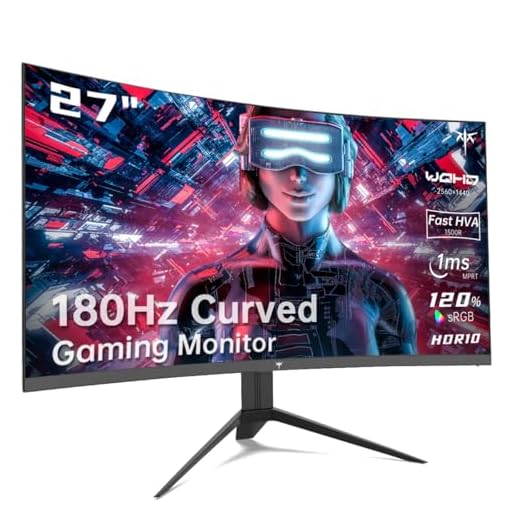



Alienware 27" Fast IPS QHD 180Hz
You will notice extremely snappy input and excellent color thanks to the Fast IPS panel and high refresh rate. It’s ideal if you want premium responsiveness for competitive play while keeping QHD resolution clarity.
Pros
- Fast IPS panel with excellent color and contrast
- Up to 180Hz refresh and 1ms response for fluid gameplay
- Supports both NVIDIA G-SYNC and AMD FreeSync
- High-quality build and premium design
Cons
- Higher price than mainstream alternatives
- You need DisplayPort to reach top refresh rates
Premium performance for demanding gamers
This Alienware 27" is aimed at players who want a premium display that blends high refresh rates with very good color accuracy. The Fast IPS technology gives you the responsiveness commonly found in TN panels but with far better viewing angles and color reproduction.
- 27" QHD (2560x1440) Fast IPS panel
- 180Hz refresh (DisplayPort), 1ms response, G-Sync and FreeSync support
- Robust build quality and gamer-focused features
How it fits into a PS5-centric setup
While PS5 will not benefit from 180Hz, it will still produce excellent visuals at 60Hz/120Hz depending on the game and the console’s output mode. The monitor really shines on PC where you can push higher frame rates. If you’re building a hybrid console/PC setup and want the best responsiveness and color in one screen, this is a top contender.
Practical recommendations
Use DisplayPort for PC to reach 180Hz; keep HDMI connected for console use. Calibrate or use a factory-sRGB preset if you do creative work. Expect to pay a premium for the performance and finish, but you’ll get a top-tier experience in return.
Samsung Odyssey G55C 32" QHD 165Hz
You’ll get a vivid QHD image and a tight 1000R curve that pulls you into the action. The high refresh rate and good color reproduction make it a great choice for both big-screen single-player and fast titles.
Pros
- 32" QHD 1000R curved panel for immersion
- 165Hz refresh with 1ms MPRT and FreeSync
- Strong picture quality and pixel density vs 1080p
- Good value for a premium-feeling curved display
Cons
- VESA mount placement can be awkward for some arms
- Limited input count compared with some rivals
Immersive curve and high refresh combined
The Odyssey G55C gives you one of the tighter curves (1000R) available on consumer monitors, which can make single-player games and movie watching feel more cinematic. Coupled with QHD resolution and 165Hz refresh, it’s a compelling option if you want a larger curved display.
- 32" QHD (2560x1440) curved VA panel at 1000R
- 165Hz refresh rate, 1ms (MPRT), HDR10 support
Considerations for console owners
PS5 users will appreciate the overall screen size and image clarity, though native 1440p support on consoles remains hit-or-miss; many users run consoles at 1080p/120Hz or 4K/60. For PC gamers, this monitor is more straightforward: excellent immersion, good refresh, and sharp visuals. If you plan to mount the monitor, check your arm’s clearance as the VESA holes are placed lower than some alternatives.
Final advice
Use DisplayPort for PC to reach top refresh rates, and reserve HDMI for console input. Tune the picture with Samsung’s presets to match gaming or movie modes — the difference is noticeable.
Acer Nitro 27" WQHD 180Hz IPS
You get a sharp WQHD panel with a high refresh rate that suits both immersive single-player games and competitive play. Colors and detail are noticeably better than 1080p, making this a solid all-rounder for mixed console and PC use.
Pros
- 27" 2560x1440 WQHD gives noticeably sharper images
- Up to 180Hz (DisplayPort) with 0.5–1ms response
- Wide color (DCI-P3/95%) and HDR support
- Good ergonomics and thin bezels for multi-monitor setups
Cons
- PS5 doesn’t officially support 1440p, so console users may be limited
- HDR peak brightness is modest compared with premium HDR displays
Who this monitor is for
If you want better-than-FHD detail but still retain high-refresh gameplay, this 27" WQHD IPS monitor is built to deliver. It strikes a strong balance for streamers, creative work, and gamers who split time between PC and console.
- Native 2560x1440 resolution on a 27" IPS panel
- Up to 180Hz over DisplayPort and 144Hz via HDMI
- AMD FreeSync Premium, low-dimming, and flicker-free tech
Real-world benefits and caveats
On PC you can fully exploit the 1440p/180Hz combination for crisp visuals and smooth motion. On PS5, official support for 1440p is limited (some players use QHD successfully with firmware/compatibility tricks), so expect to run most console games at 1080p/120Hz or 4K/60Hz depending on how you route the signal. HDR adds dynamic range but the monitor’s peak brightness won’t match higher-end desktop HDR displays.
Practical setup advice
Use DisplayPort to reach the top refresh rate on PC. If you switch between PC and console frequently, consider a KVM or leaving two inputs connected for automatic switching. Tweak the color and HDR presets for the content you use most: gaming, movie, and sRGB/creator modes are typically available.
AOC 27" 240Hz Curved Competitive Monitor
You get blistering responsiveness and extremely high refresh performance that benefits fast shooters and competitive multiplayer. The curved 27" panel and low input lag make it easy to spot and track targets during intense matches.
Pros
- Ultra-fast 240Hz refresh with 0.5ms MPRT
- Curved 1500R panel for immersive view
- Height-adjustable ergonomic stand and VESA support
- Good value for high refresh hardware
Cons
- 1080p resolution on a 27" panel may look soft to some
- Console compatibility limited to 120Hz at most
Why you might choose this monitor
You’re looking at a monitor built around speed — a 240Hz refresh rate and a claimed 0.5ms MPRT response time give you competitive advantage in twitch-focused games. The 1500R curve increases immersion and can help keep more of the screen within your natural field of view during long sessions.
- 27" Full HD (1920x1080) curved VA panel
- 240Hz (via DisplayPort) and 0.5ms MPRT low-latency modes
- AMD FreeSync support and low input-lag mode
Practical notes and limitations
If you play primarily on PS5, you’ll be able to get the most out of this monitor at 120Hz (PlayStation’s console limit for most titles) rather than 240Hz. The Full HD resolution on a 27" screen is a trade-off: you gain high frame rates and low latency, but fine desktop text and very detailed textures won’t be as crisp as on 1440p or 4K displays. For competitive console and PC play where frame-rate matters most, this is an excellent budget-to-midrange choice.
Tips for setup
You’ll want to connect via DisplayPort on PC to reach the highest refresh rates; consoles use HDMI and will typically be limited to 120Hz. Turn on the monitor’s MPRT/low motion blur option when you need maximum responsiveness, and switch it off for better brightness and color when watching media or working.
ASUS TUF 32" Curved 1440p 165Hz Monitor
You benefit from a big 31.5" curved QHD panel with Adaptive-Sync and ELMB motion clarity for action-packed titles. It’s a strong pick if you want a larger display and a high-refresh 2K image, though console compatibility varies.
Pros
- Large 31.5" 2560x1440 curved screen for immersion
- 165Hz refresh with ELMB for reduced motion blur
- FreeSync Premium and good overall color performance
- VESA mountable for flexible setups
Cons
- PS5 doesn’t natively support 1440p in every title
- Some users report needing tweaks to eliminate flicker with certain GPU sync settings
Big-screen QHD for immersive play
This 31.5" curved monitor targets players who want a large, cinematic screen while retaining a competitive edge. The 1500R curvature wraps the display for better immersion, and the ELMB (Extreme Low Motion Blur) feature helps keep fast-moving objects sharp.
- 31.5" QHD (2560x1440) curved VA panel
- 165Hz refresh rate with 1ms MPRT and ELMB technology
- FreeSync Premium, built-in speakers, and VESA support
What to expect on consoles and PC
On PC you’ll get the full benefit of 1440p and high refresh rates. For PS5 owners, the monitor can still be a great living-room screen if you prioritize size and HDR-like contrast, but you may run titles at 4K/60 or 1080p/120 rather than native 1440p. Be aware that adaptive sync settings on some GPU/driver combinations may need a quick tweak to avoid minor flicker.
Final setup suggestions
If you use an AMD GPU, experiment with enabling/disabling FreeSync if you notice flicker. Consider VESA mounting the display if you want more desk space or a higher seating posture; the sheer size makes a mount more comfortable for many setups.
KTC 27" 1440p 170Hz Competitive Monitor
You gain QHD clarity combined with a high refresh rate at a price that undercuts many established brands. It’s a solid pick if you want 1440p performance without a premium sticker, though ergonomics and extras are basic.
Pros
- 2560x1440 resolution with high refresh rates
- 1ms MPRT and FreeSync/G-Sync compatibility
- Strong brightness and color for the price
- Three-year warranty and responsive support
Cons
- Stand only offers tilt; limited ergonomics
- Some units have reported minor pixel or mounting issues
2K performance without the premium cost
This 27" KTC monitor gives you QHD resolution and a high refresh rate that appeal to both competitive and immersive players. For the money, you get a package that competes with more expensive offerings in terms of pixel density and motion performance.
- 27" QHD (2560x1440) fast HVA panel
- Up to 170Hz (varying by port/adapter), 1ms MPRT, FreeSync and G-Sync compatibility
Practical trade-offs and real-world use
You’ll appreciate the sharpness for games and productivity, and the higher refresh makes action feel smoother than typical 60/75Hz displays. The stand is simple — tilt only — so if you need height or swivel you’ll want a VESA arm. A few users report small issues like a stuck pixel or mounting screw fit, but the brand’s support and warranty tend to address those cases.
Final recommendations
Use DisplayPort for the best refresh on PC and keep HDMI for console input. If you want the 1440p experience on a budget and are willing to accept a simpler stand, this monitor offers very good value for a hybrid console/PC setup.
SANSUI 27" 160Hz Curved Gaming Monitor
You get a 27" curved panel with a high refresh rate that makes motion smooth and reduces eye strain from long sessions. It’s a budget-friendly way to step up from 60Hz, with sensible features for mixed use.
Pros
- 160Hz refresh and 1ms MPRT for smooth gameplay
- 1500R curvature for comfortable extended use
- Good contrast (4000:1 claimed) and solid value
- Includes HDMI/DisplayPort and VESA support
Cons
- 1080p on 27" can appear less sharp than 1440p
- HDR implementation is basic and not very bright
High refresh on a budget
This 27" Sansui monitor is targeted at buyers who want high refresh performance without the higher cost of premium brands. The 160Hz refresh and 1ms MPRT help reduce perceived motion blur and keep competitive titles feeling responsive.
- 27" FHD (1920x1080) curved panel at 1500R
- Up to 160Hz refresh, FreeSync, HDR support, low blue light modes
How it works for different uses
For PC gamers with midrange GPUs, the monitor’s high refresh rate is a clear benefit. For PS5 owners, you’ll typically run at 1080p/120Hz for compatible titles; the extra headroom to 160Hz is mostly useful on PC. The 1080p resolution on a 27" screen is a trade-off: you get higher frame rates and a lower price, but text and UI elements aren’t as razor-sharp as on a 1440p panel.
Setup tips and expectations
Enable FreeSync and use DisplayPort when possible for the best PC performance. If you’re sensitive to brightness and HDR, consider adjusting the monitor’s HDR and brightness settings to avoid washed-out colors in certain scenes.
Sceptre 30" 21:9 200Hz Ultrawide Monitor
You’ll enjoy a very wide field of view that enhances immersion in single-player games and productivity workflows. However, console support for ultrawide resolutions is limited, so this monitor is primarily a PC-focused purchase.
Pros
- Large 30" 21:9 ultrawide screen for immersion
- Very high refresh rate up to 200Hz (DisplayPort)
- Built-in speakers and solid metal stand
- Strong value compared to other ultrawides
Cons
- PS5 does not support ultrawide aspect ratios; black bars or letterboxing expected
- Panel is 2560x1080, which is stretched across a large display and may appear less sharp than 1440p
What this monitor does best
You’ll get an expansive 21:9 field of view that’s great for multitasking, productivity and immersive single-player gaming on PC. The 200Hz capability (via DisplayPort) is rare on ultrawide panels at this price point and makes fast motion look smooth when paired with a capable GPU.
- 30" ultrawide (2560x1080) curved panel
- Up to 200Hz refresh (DisplayPort) and multiple HDMI inputs
- Built-in speakers and sturdy metal stand
Console compatibility and practical considerations
On PlayStation 5 you’ll be constrained by conventional 16:9 output — most games won’t fill the ultrawide screen, so you’ll see pillar boxes or letterboxing. If your main use case is PC gaming, content creation, or a multi-window desktop, this is an affordable way to step into ultrawide territory. Keep in mind pixel density is lower than 1440p monitors, so fine detail won’t be as crisp.
Setup tips
Use DisplayPort for the highest refresh rates on PC. Calibrate brightness and contrast out of the box for the best color and black levels; the built-in speakers are serviceable for chat and system sounds but plan to use headphones or external speakers for serious audio.
Sceptre 24" 100Hz Curved Entry Monitor
You’ll get an affordable curved monitor with better-than-60Hz motion at a tiny price. It’s a straightforward option for casual gamers or as a secondary display, but it lacks the color depth and features of higher-tier models.
Pros
- Very affordable price point
- 100Hz refresh gives smoother motion than 60Hz
- Curved screen adds mild immersion
- Compact 24" footprint fits small desks
Cons
- Basic panel with limited color depth and contrast
- Durability and long-term reliability can vary
A no-frills pick for budget setups
If your priority is cost and compact size, this 24" curved Sceptre gives you a step up from basic 60Hz monitors without breaking the bank. It’s useful as a console display or a secondary PC screen for browsing and casual play.
- 24" curved 1920x1080 panel with 100Hz refresh
- Built-in speakers and standard HDMI inputs
Expectations and real-world use
For PS5 owners this monitor will support smoother gameplay at higher frame rates compared to 60Hz panels, but it won’t deliver the punchy colors, contrast, or HDR experience of pricier displays. It’s best suited for casual players, kids, or as a temporary/secondary screen.
Quick tips
Keep reasonable expectations on color and brightness. If you plan to use it as your main display for competitive gaming, consider investing in a higher-refresh model with lower latency; for casual play or desk-limited setups, this is a sensible low-cost choice.
Final Thoughts on the Best Monitors for PS5

Pick the Alienware 27" Fast IPS QHD 180Hz if you prioritize competitive performance. Its Fast IPS panel gives you top-tier responsiveness and excellent color accuracy. You’ll get very low input lag and crisp QHD detail—ideal if you play shooters, time-sensitive multiplayer, or want a display that still looks great for single-player titles. Set your PS5 to 120Hz (where supported) and you’ll feel the difference.
Choose the Samsung Odyssey G55C 32" QHD 165Hz if you want immersion and a bigger canvas. The tight 1000R curve and vivid QHD image make single-player adventures and cinematic moments more engaging, while the high refresh keeps motion smooth in faster games. It’s the better pick for couch-style play and anyone who prefers a larger, more enveloping screen.
What Makes a Monitor Great for PS5 Gaming?
The PlayStation 5 is designed to take full advantage of high frame rates, fast response times, and stunning resolutions. To unlock its full potential, you’ll want a monitor that supports features like 120Hz refresh rates, low input lag, and HDMI 2.1. These ensure smooth gameplay, crystal-clear graphics, and responsiveness that matches the console’s power.
While standard monitors can handle casual use, the best monitors for PS5 are optimized for gaming, offering features like VRR (Variable Refresh Rate), HDR support, and ultra-low latency.
How to Choose the Best Monitors for PS5
Not all gaming monitors are created equal. When shopping for a PS5 display, pay attention to refresh rate, resolution, panel type, and connectivity. Here are the most important factors to guide your choice:
1. Look for 120Hz Refresh Rate with HDMI 2.1
The PS5 can run games at up to 120 frames per second, but only if your monitor supports 120Hz and HDMI 2.1. Without HDMI 2.1, you’ll be limited to 60Hz in most cases, which means you won’t be getting the smoothest gameplay possible.
A monitor with 120Hz or higher will give you responsive and fluid motion, especially important in fast-paced action, racing, and FPS titles.
2. Prioritize Low Response Time and VRR
A response time of 1ms or less helps reduce ghosting and motion blur. This keeps gameplay sharp, especially in competitive environments.
Variable Refresh Rate (VRR), which includes technologies like FreeSync or G-Sync Compatible, is also essential. It synchronizes the monitor with your PS5’s output, eliminating screen tearing and stuttering for a much smoother experience.
3. Choose the Right Resolution: 1080p, 1440p, or 4K
Resolution plays a huge role in visuals:
- 1080p (Full HD): Works well for competitive gamers who prioritize frame rate over resolution. Affordable and widely available.
- 1440p (QHD): Recently supported by PS5, this is a sweet spot between sharpness and performance. Great for gamers who want crisp detail without sacrificing speed.
- 4K (UHD): Delivers the best image quality with incredible sharpness and realism. Perfect for immersive, story-driven titles, though it demands more from the hardware to maintain smooth frame rates.
If you’re after cinematic visuals, go 4K. If you want balance, 1440p is the ideal compromise.
4. Go for HDR and Brightness for Stunning Visuals
The PS5 supports HDR (High Dynamic Range), which enhances colors, contrast, and overall image quality. To truly benefit from this, pick a monitor with at least HDR10 support and good peak brightness. This makes a big difference in visually rich games where lighting and shadows play a crucial role.
5. Consider Built-in Audio and Extra Features
Some monitors for PS5 come with built-in speakers, which can be convenient if you don’t want external audio gear. While they won’t match the quality of headsets or dedicated speakers, they can provide decent sound for casual play.
Other features worth considering include Game Modes for optimized settings, Black Equalizer for better visibility in dark scenes, and multiple HDMI ports if you plan to connect both your PS5 and another device.
Check Out the Best Monitors for PS5
Still not sure which one to choose? Click the link below to see the best-selling products.
Also Check Out Other Helpful Articles
Take a look at more useful articles that can help you make more informed decisions.
- Best PS4 Accessories in 2025 (Top 9: HORI, eXtremeRate, and More)
- Best Racing Wheels For PC in 2025 (Top 8: Logitech G920, Numskull and More)
- Best Racing Wheels For PS4 in 2025 (Top 9: Logitech G29, Thrustmaster F1 and More)
Video About the Best Monitors for PS5
We created a video on the topic. Just click to watch.
About the Author
